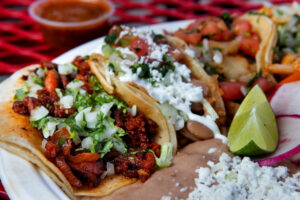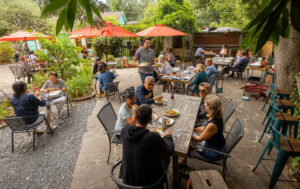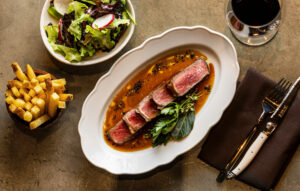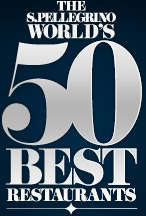 To much fanfare and global foodie hullabaloo, Restaurant Magazine just released its list of the Top 50 Restaurants in the World. The stakes are high, very high; even a slot in the lower tiers can transform an establishment’s fortunes, quite literally overnight, as I read last week in the Times: “Business after the awards was, like, stupid,” said Mr. Bosi, of London’s Hibiscus; the day prior to last year’s announcement, you could have secured a table for dinner the same evening at overall winner Noma – the day after, you’d have been in line behind 100,000 other hungry souls…
To much fanfare and global foodie hullabaloo, Restaurant Magazine just released its list of the Top 50 Restaurants in the World. The stakes are high, very high; even a slot in the lower tiers can transform an establishment’s fortunes, quite literally overnight, as I read last week in the Times: “Business after the awards was, like, stupid,” said Mr. Bosi, of London’s Hibiscus; the day prior to last year’s announcement, you could have secured a table for dinner the same evening at overall winner Noma – the day after, you’d have been in line behind 100,000 other hungry souls…
You might wonder, as I do, about the extent to which the whole exercise is just plain silly: I mean, really, how does one define absolutes for restaurants? At any cost, or for the money? How much do service, decor, ambience, and originality count? How do I separate the restaurant itself from the intangibles of a particular meal, say wherever it is that my wife agreed to marry me? All of which is to say nothing of the controversy over the process itself: Some of the eligible chefs also work as judges; some national governments woo jurors with all-expenses paid visits; and the jurors don’t even have to have eaten at a restaurant to vote for it.
To be clear, I have quite a lot of time for restaurant critics, and I believe they get it right far more than they get it wrong, but I am deeply skeptical about The World’s 50 Best, mainly because the results, as one juror interviewed by the Times readily admits, read like they’re more about what is perceived as cool and hip than they are about dining. I could add my voice to the inevitable tsunami of critics yammering on about this place or that – I’ve eaten at more than half a dozen of them, and I have some pretty strong views about their rightful ranking, or lack thereof – but, really, who cares what I think? And that’s kind of my point: the very nature of the undertaking strikes me as fanciful at best, and grossly misleading at worst, as you can see if you try to make any sort of rational sense of some of the results:
- The French Laundry may or may not deserve its lowly 2011 ranking of 56, but can it really have gotten that much worse since 2008, when it was No. 5? Or does it make any sense to simultaneously rate its culinary clone in NYC, Per Se, No. 10?
- Argue with Michelin all you want, but is it reasonable to suggest that Le Chateaubriand, a hyper-trendy bistro in Paris that came in at No. 9 and has precisely zero Michelin stars, is significantly better than every single one of the 24 (at my last count) 3-star restaurants in all of France?
- Or that there can be any meaningful information, statistically speaking, in slots 30 through 80, when their difference can be accounted for by a single vote? (For context, the Top 10 get votes in the hundreds, so we’re talking about a single human, or a fraction of a percent of the total, playing a determining role.)
I mean no disrespect to the chefs on the list, and I’m sure that every single one of them is at the absolute pinnacle of his or her game; Noma, the winner for the 2nd year in a row, and most of the other Top 10, are by all accounts absolutely ethereal dining experiences. But I’ve studied statistics and data for my entire professional life, and the more I stare, read, and think about the results, the more it all smacks of a popularity contest.
What do you think?










